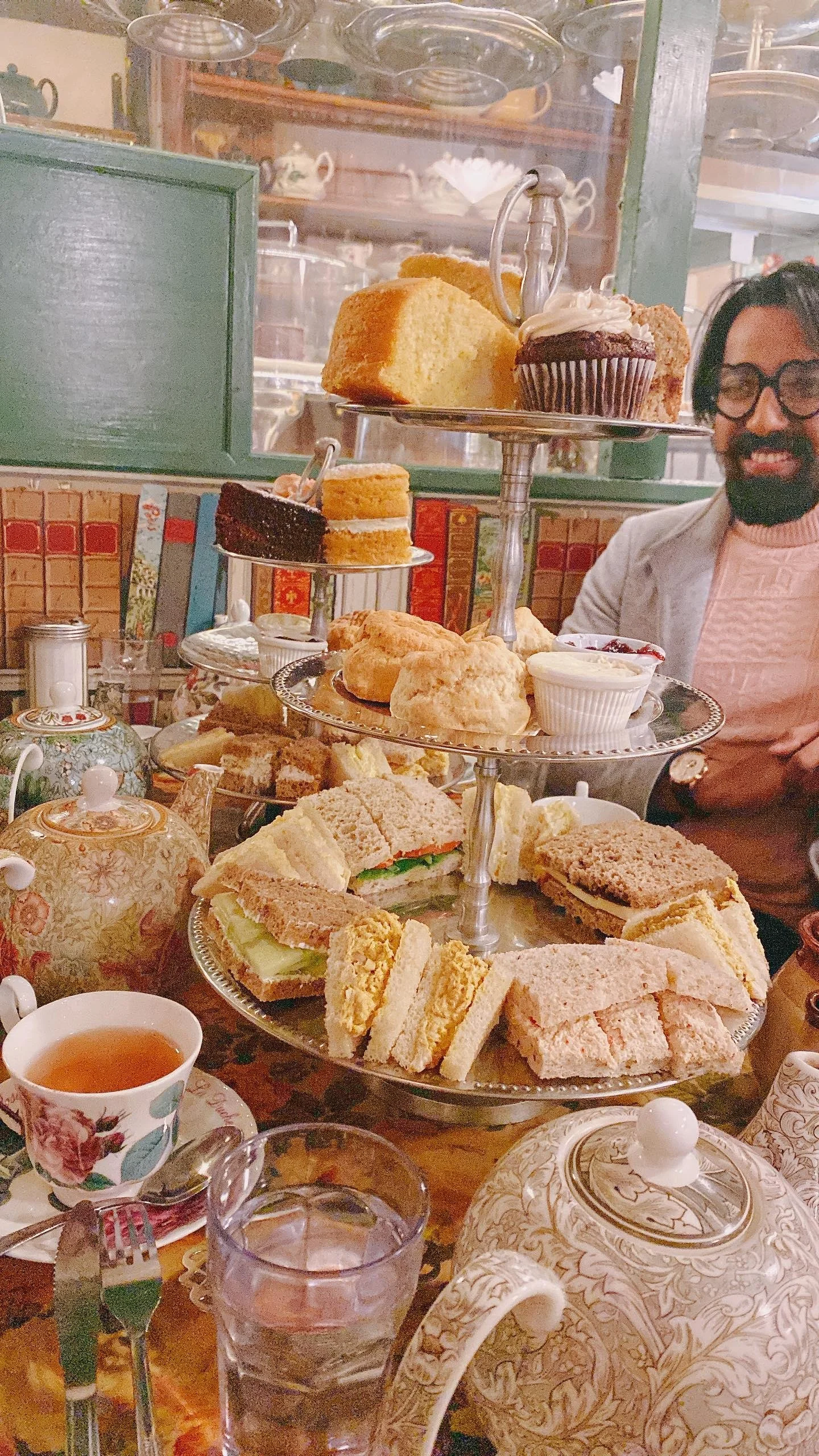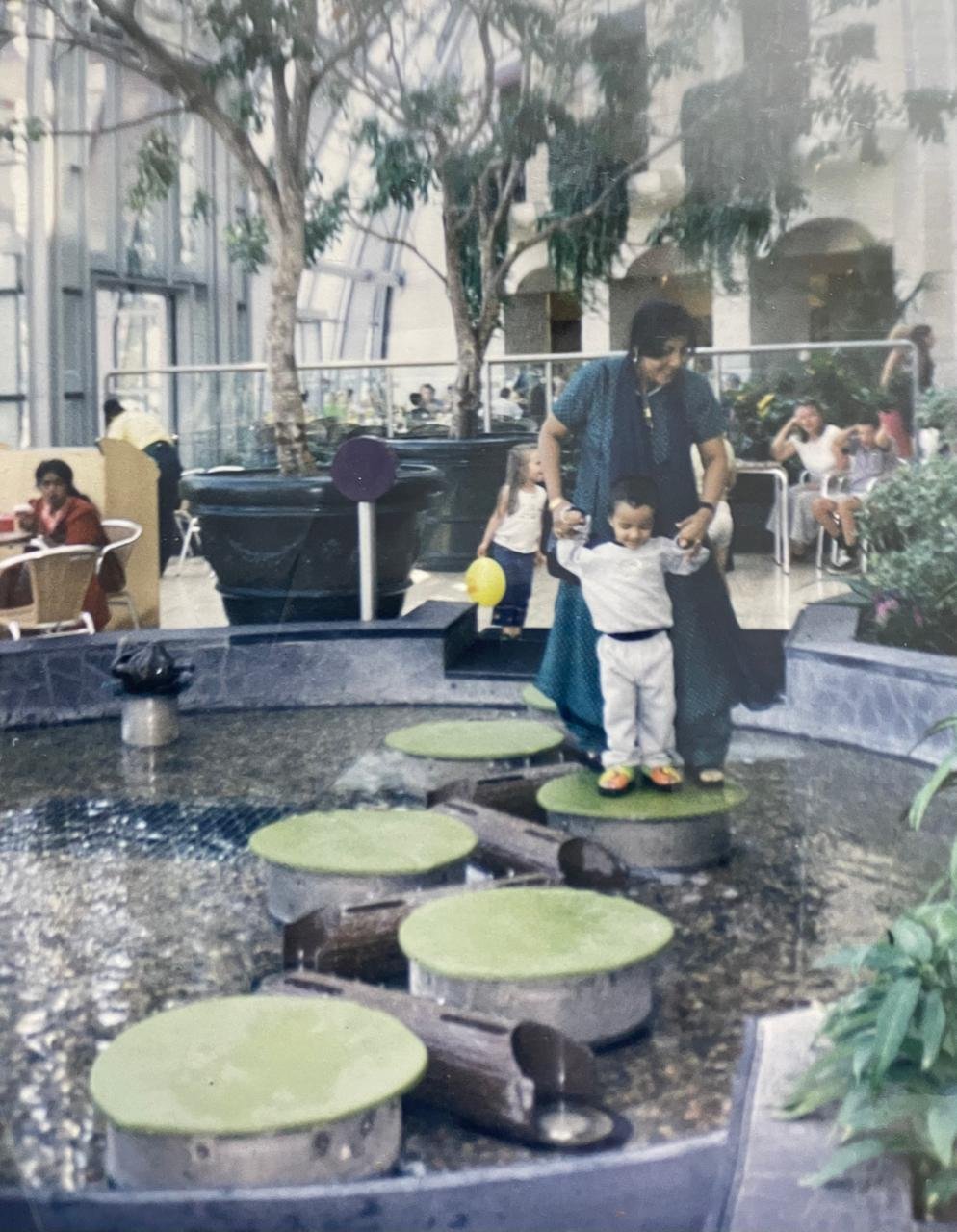রোস্ট - Roast
রোস্ট, pronounced : roast
This is one of my Sajo khala’s (middle maternal aunt) signature recipes. This is a staple of any Bangali home event, celebration or wedding. Sweet, creamy, spicy all in one, this is a treat of a meal filled with delicious nutrients. The star here is the onion paste, most of the flavor and texture are carried by it, be more generous with it than not. Mace (গদা - Gada) and nutmeg (জায়ফল - jayphala) lend their wonderful warmth to it.
Pair with some simple polao or white rice. Breads (parathas, naan, popadoom) will do well too.
Ingredients and tools
Heavy bottomed pot with heavy lid or Dutch Oven
6-8 pieces of skinless chicken legs
1 medium white/yellow onion blended/processed to a paste
1 medium white/yellow onion sliced in crescents
1/2 tbsp garlic paste (in a pinch equivalent qty. of finely diced garlic will do)
1 tbsp ginger paste (in a pinch equivalent qty. of finely diced ginger will do)
1-1.5 cups dahi/doi (aka desi yoghurt). Alternatively use equal qty. Greek yoghurt with 3 tbsp water
1/4 cup neutral oil (avocado/canola etc.)
3 tbsp ghee/butter
1 tbsp ground nutmeg/freshly shaved nutmeg
1 tbsp ground mace (buy whole mace and then process it)
4 Thai Green chili peppers OR 1/2 tbsp deshi chili powder
1/2 tbsp coriander powder
1/2 tbsp cumin powder
4-6 cardamom pods crushed
1 stick of cinammon
8-12 dried raisins
1 tsp garam masala (if unavailable sprinkle in some cinammon powder and a clove)
2 bay leaves
1/2 tsp sugar
Water
Salt to taste
Obtaining ingredients
Some of the ingredients listed will not be available at your local Tesco. I will list commonly available brands, things I have found in even Ann Arbor’s IndoPaks. I would recommend also stocking up on the ground spices from an IndoPak or spice store. Every Patel Brothers/Taj Stores will stock these ingredients. If you absolutely cannot find them, ask me and I’ll help out.
Whole Mace - most IndoPaks will sell this for cheaper than this Amazon listing. Mace is a fantastic ingredient to have on hand.
Nutmeg - this is a mainstay in most American baking pantries. The whole spice, shaved, is much preferable to the ground variety that stales quickly. IndoPaks will sell packs of 15 for 3-6 USD.
Doi/Dahi - This is most readily found in an IndoPak linked. This has a higher water content than Greek yoghurt. If you find the sweet variety (often labelled “sweet curd”), go for it, I prefer it, but it is often harder to find.
Instructions on cooking
Let’s start by marinating the chicken. Make some slices on the surface of the chicken legs - nothing too fancy, this merely helps the spice penetrate further into the meat.
Heat your oil and ghee in the pot, and fry the chicken until golden brown but not cooked all the way through. Do not crowd the pot, you just want to fry the chicken, not release too much moisture.
In a large non reactive bowl, thoroughly mix your semi-cooked chicken, yoghurt, ground mace, nutmeg, coriander and salt (do at least 1 tbsp here). Cover with plastic/lid and let it sit in the fridge for 30 minutes at least, up to 2 hours. (if not using whole chili pepper add chili powder to this step, I add it anyway for an extra kick).
Add sliced onions to the pot and caramelize them. Set aside half of your caramelized onions.
Add your garlic, ginger and onion pastes, cardamom pods, cinnamon stick, and chili peppers into the pot and fry until fragrant. Add more ghee if necessary (if sticking occurs).
Add marinated chicken and all contents of the bowl to the pot and incorporate well. Add cumin.
Let the mixture come to a boil, then add water, dried raisins and bay leaves, and mix thoroughly. The water should barely cover the meat (it should protrude prominently throughout). Bring curry to a roaring boil.
Once at a roaring boil cover the pot and after 30s-1min lower heat drastically to bring to a low simmer. If the heat is too high you will burn the meat to the bottom of the pot. If using unsweetened yoghurt add sugar before covering.
Check in after 30 mins. The water level should have reduced to give you a thick concoction. Give the curry a taste to adjust for salt.
When done cooking take off heat, and add garam masala.
Tips, tricks and lore
If the curry tastes bitter, add water. Too little water will make your ground spices taste bitter. If still bitter add a tablespoon of ghee. Water is the secret ingredient that makes the difference between a good curry and a bad one.
Too much water is also easily fixed by simmering with the lid off for a bit.
The initial process of incorporating the spices, pastes and onions is called কশানো (koshano). It will form the base of every curry you make ever.
The raisins are optional..ish. Bangladeshis are divided starkly in two - people who like raisins in their roast and polao, and the people who are incorrect. The raisins rehydrate to their plump form and add a gorgeous sweetness to your dish, while also absorbing the flavours in your curry.
I mostly kid, enjoy this however you want.
If you cannot use yoghurt due to dietary restrictions, use same volume of coconut milk for a slightly different but still EXCELLENT dish. Really, if you like this recipe, make it sometime with equal parts yoghurt and coconut milk.
If you want to do a vegetarian version of this dish, use cauliflower florets instead of chicken, and perhaps some tofu/tempeh. Play with it and let me know how it went!
If you made this recipe I would love to hear from you. What went wrong, what went right etc. If you have questions in the process please feel free to contact me. How did you adjust ratio of ingredients for your palate? Curries are not a science they are an art. Take a picture and send it to me, would love nothing more than to see it. Add your messages down here.
Cheers
N



